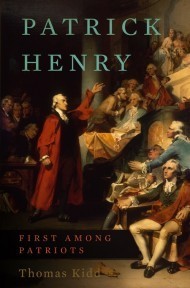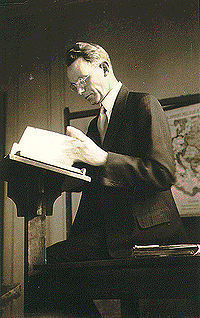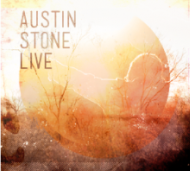Justin Taylor's Blog, page 258
December 9, 2011
The Wexford Carol
Allison Krauss and Yo-Yo Ma perform the Wexford Carol, "one of the oldest extant Christmas carols in the European tradition."
Good people all, this Christmas time,
Consider well and bear in mind
What our good God for us has done
In sending his beloved son
With Mary holy we should pray,
To God with love this Christmas Day
In Bethlehem upon that morn,
There was a blessed Messiah born
The night before that happy tide
The noble Virgin and her guide
Were long time seeking up and down
To find a lodging in the town
But mark right well what came to pass
From every door repelled, alas
As was foretold, their refuge all
Was but a humble ox's stall
Near Bethlehem did shepherds keep
Their flocks of lambs and feeding sheep
To whom God's angel did appear
Which put the shepherds in great fear
Arise and go, the angels said
To Bethlehem, be not afraid
For there you'll find, this happy morn
A princely babe, sweet Jesus, born
With thankful heart and joyful mind
The shepherds went the babe to find
And as God's angel had foretold
They did our Saviour Christ behold
Within a manger he was laid
And by his side a virgin maid
Attending on the Lord of Life
Who came on earth to end all strife
There were three wise men from afar
Directed by a glorious star
And on they wandered night and day
Until they came where Jesus lay
And when they came unto that place
Where our beloved Messiah lay
They humbly cast them at his feet
With gifts of gold and incense sweet.
December 8, 2011
American History and Patrick Henry: Conversations with Thomas Kidd
 One of the bright young evangelical historians of American history and religion—following in the path of Noll, Marsden, Stout, and others—is Baylor's Thomas S. Kidd. Lord willing we'll be seeing more of his helpful work for years to come. His books thus far include The Great Awakening: The Roots of Evangelical Christianity in Colonial America (2009), God of Liberty: A Religious History of the American Revolution (2010), and the new Patrick Henry: First Among Patriots (2011). His next project is a biography of George Whitefield for Yale University Press.
One of the bright young evangelical historians of American history and religion—following in the path of Noll, Marsden, Stout, and others—is Baylor's Thomas S. Kidd. Lord willing we'll be seeing more of his helpful work for years to come. His books thus far include The Great Awakening: The Roots of Evangelical Christianity in Colonial America (2009), God of Liberty: A Religious History of the American Revolution (2010), and the new Patrick Henry: First Among Patriots (2011). His next project is a biography of George Whitefield for Yale University Press.
To learn more about Professor Kidd and his perspective on American history—and Patrick Henry in particular—you can listen to or read this conversation with Kidd and Albert Mohler.
You can also listen to, read an excerpt from, or watch below a conversation with Kidd and Marvin Olasky.
December 7, 2011
The Earliest Testimony of the Church: Jesus Is God
Jaroslav Pelikan:
The oldest surviving sermon of the Christian church after the New Testament opened with the words: "Brethren, we ought so to think of Jesus Christ as of God, as the judge of living and dead. And we ought not to belittle our salvation; for when we belittle him, we expect also to receive little."
The oldest surviving account of the death of a Christian martyr contained the declaration: "It will be impossible for us to forsake Christ . . . or to worship any other. For him, being the Son of God, we adore, but the martyrs . . . we cherish."
The oldest surviving pagan report about the church described Christians as gathering before sunrise and "singing a hymn to Christ as to [a] god."
The oldest surviving liturgical prayer of the church was a prayer addressed to Christ: "Our Lord, come!"
Clearly it was the message of what the church believed and taught that "God" was an appropriate name for Jesus Christ.
—Jaroslav Pelikan, The Christian Tradition: A History of the Development of Doctrine, Vol. 1: The Emergence of the Catholic Tradition (100-600) (Chicago: University of Chicago Press, 1971), p. 173; emphasis added.
An Interview with Andrew Peterson
Christianity Today's Mark Moring interviews singer/songwriter/novelist Andrew Peterson on his Christmas album and tour Behold the Lamb of God, his books for children and young adults, and Hutchmoot.
You can stream Behold the Lamb of God for free online. I highly recommend it, and especially recommend seeing the concert in person if you can.
Here's a video someone made for one of the songs:
What Is the Mission of the Church?
A thoughtful, conversation-advancing observation from Nathan Finn:
To what degree are representatives of the different tendencies talking past each other because they mean different things when they use the word church? To say it another way, to what degree is this a debate between folks who prioritize the church universal versus those who prioritize local churches?
Many representative voices of the "holistic mission" tendency are either Anglican (Stott, Wright) or intentionally non-denominational (the Lausanne movement). This stands in contrast to DeYoung and Gilbert, who are Reformed and Southern Baptist, respectively. As a general rule, Anglicans and interdenominational and/or parachurch evangelicals are referring to the wider body of Christ when they use the word church, whereas Baptists and at least some Reformed Christians are typically speaking of particular congregations when they use the term. Both believe in both the church universal and local churches, of course, but the primary emphasis tends to be on one or the other.
What Is a Pastor For? Leader/Entrepreneur/Change Agent — Or Shepherd of Souls?
From an email—shared with permission—from a fellow elder after reading Mark Galli's Christianity Today article "Why We Need More 'Chaplains' and Fewer Leaders":
I have read hundreds of articles but I can't remember when one moved me like this one. I wanted to write you immediately but I was so overcome with my emotions that I wasn't able to. It happened again when I tried to explain it my wife. I believe it was because my mind was flooded with all the men who had cared for my soul over the years. God bless them! May their tribe increase. May God in his grace raise up more men like them.
Todd Boslinger has written a response to Galli's piece, offering some pushback; and Galli has responded.
December 6, 2011
The Most Important Christian Thinker Since Calvin?
 John Frame says that Reformed theologian and philosopher Cornelius Van Til (1895-1987) "is perhaps the most important Christian thinker since Calvin."
John Frame says that Reformed theologian and philosopher Cornelius Van Til (1895-1987) "is perhaps the most important Christian thinker since Calvin."
Frame offers several qualifiers to his provocative claim:
To say that Van Til is the most important Christian thinker of our time is not to say that he is the most comprehensive thinker, or the clearest, or the most persuasive.
Certainly it is not to say (as some of his more fanatical followers assume) that he is beyond criticism.
Nor is it to say that he has had a greater impact on present-day Christian thought than anybody else; indeed, his isolation continues, and his influence remains relatively small.
So what does he mean?
It is, rather, to say that he has made the Christian community aware of its only appropriate epistemology, thus laying a necessary foundation that ought to be the basis for all subsequent Christian reflection.
To explain, Frame compares Van Til with the most important philosopher of the modern period, Immanuel Kant (1724-1804). Frame points out that Kant argued for the autonomy of the human mind—that the human mind is its own ultimate authority and the author of its own moral standards.
Frame writes:
Kant saw, of course, that none of this could be proved in the usual sense of proof. He adopted what he called the "transcendental method," which seeks to determine the necessary preconditions or presuppositions of rationality. He reached his conclusions concerning human autonomy not by proving them by the usual philosophical methods, but by showing our need to presuppose them. Kant's philosophy, therefore, does not merely assert or assume human autonomy, as did many previous philosophers; it explicitly presupposes human autonomy. It adopts human autonomy as the root idea to which every other idea must conform. That is what makes Kant unique and vastly important: he taught secular man where his epistemology must begin, his inescapable starting point for all possible reflection.
In other words, Kant
showed "modern man," secular, would-be autonomous man, what he would have to presuppose about knowledge and the world in order to be consistent with his presumed autonomy. In other words, Kant made the modern sectarian "epistemologically self-conscious." If modern man is not to bow to God, he must bow before himself; to that extent at least, he must be a Kantian.
How does this relate to Van Til?
If Kant taught the world of secular unbelief the essentials of its own (until then, subconscious) theory of knowledge ("epistemology"), Van Til did the same thing for the Christian.
As Kant said that we must avoid any trace of the attitude of bowing before an external authority, so Van Til taught that the only way to find truth at all is to bow before God's authoritative Scripture.
As Kant presented his view transcendentally, as the inescapable ultimate presupposition of human thought, so Van Til made and defended transcendentally the same claim for the revelation of God: that God's Word is the only presupposition that does not destroy the intelligibility of human thought.
Hence Frame's application:
Because of Van Til, we can at last define the essential philosophical differences between the Christian and the non-Christian worldviews.
If Kant's achievement makes him the most important secular philosopher of modern times, should we not say that Van Til's achievement makes him the most important Christian thinker of modern times?
—John M. Frame, Cornelius Van Til: An Analysis of His Thought (Phillipsburg, NJ: P&R, 1995), pp. 44-47.
I'm tempted to provide a short bibliography of resources by and about Van Til, for those who might be interested in learning more. In addition to Frame's careful work cited above, let me recommend just one resource: Greg Bahnsen's Van Til's Apologetic: Readings and Analysis. Few books in my library are as marked up and indexed as much as this one. Bahnsen's work presents Van Til's work in its clearest and most logical form.
For those who want to see what this form of apologetics looks like in action, you may want to check out the 1985 debate between Greg Bahnsen and Gordon Stein. You can read a transcript of the two-hour debate here, listen to the MP3, or listen to all of it through YouTube after the jump:
Austin Stone Live
 It's encouraging to see the number of churches writing and singing "a new song" to the Lord in corporate worship and praise, and then making these songs available to others.
It's encouraging to see the number of churches writing and singing "a new song" to the Lord in corporate worship and praise, and then making these songs available to others.
Austin Stone Church is now streaming their new live album for free on the web. You can check them out here. Or try this link: http://stream.austinstone.net/view/.
If you're a lead worshiper and are looking to use any of these songs, they also have videos on the story of the song and instructions on playing different instruments (piano, guitar, drums), along with a PDF of theological reflection on the song.
Ben Peays has more info here.
You can also buy the album on iTunes.
New Scientific Visualization Out of Yale: From Conception to Birth
Alexander Tsiaras, chief of scientific visualization in the department of medicine at Yale University, uses micro-magnetic resonance imaging to visualize the development of the human body in the womb, from conception to birth.
In this 10-minute presentation to TED, he shows some samples:
For you formed my inward parts;
you knitted me together in my mother's womb.
I praise you, for I am fearfully and wonderfully made.
Wonderful are your works;
my soul knows it very well.
My frame was not hidden from you,
when I was being made in secret,
intricately woven in the depths of the earth.
Your eyes saw my unformed substance;
in your book were written, every one of them,
the days that were formed for me,
when as yet there was none of them.
(Psalm 139:13-16 ESV)
HT: LifeSiteNews (via Dallas Richards)
Justin Taylor's Blog
- Justin Taylor's profile
- 44 followers



